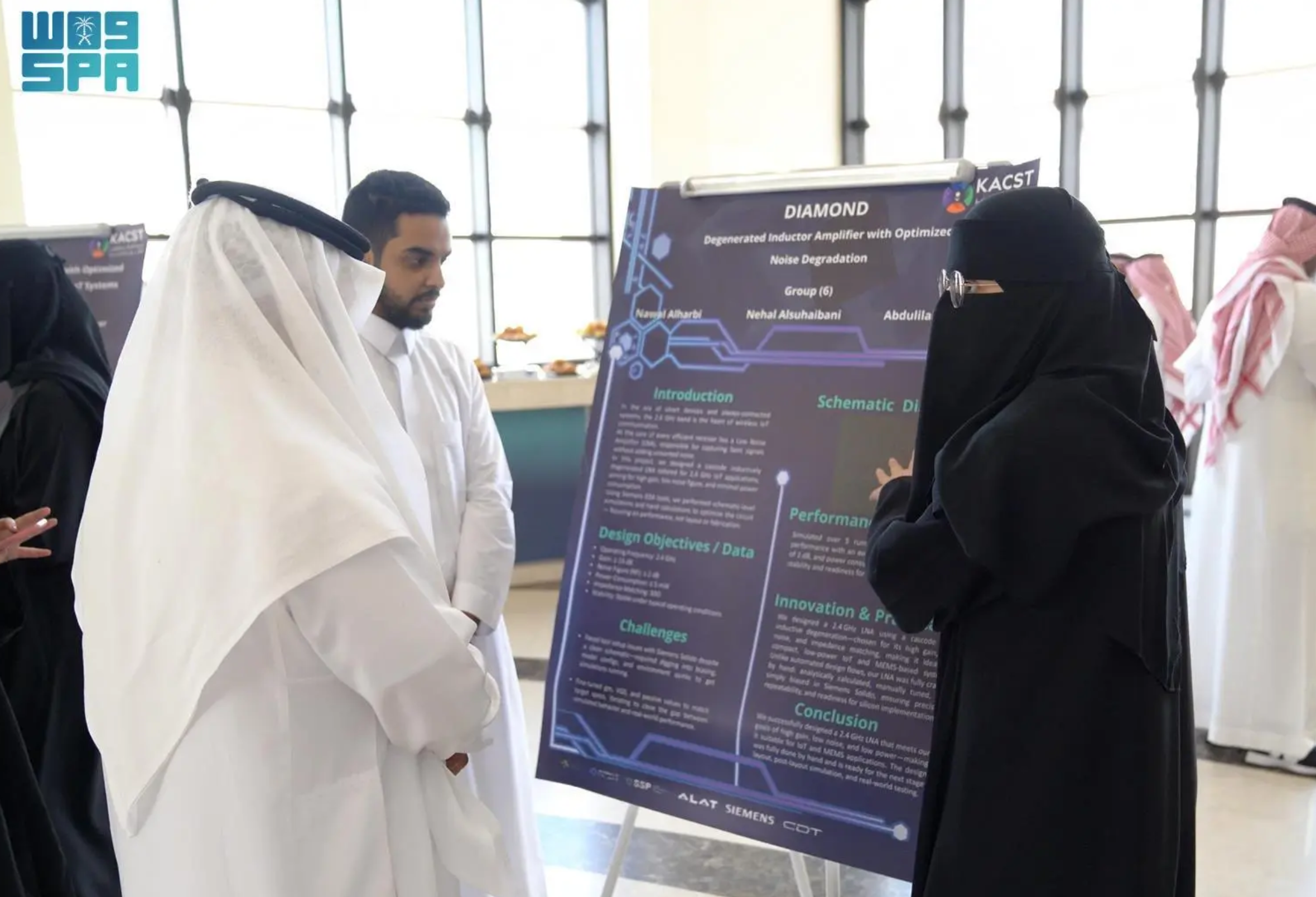
Saudi CHIPATHON Concludes, Advancing Talent in Electronic Chip Design
The integrated circuit design specialized technology event "CHIPATHON" concluded today. King Abdulaziz City for Science and Technology (KACST) organized the event in partnership with King Abdullah University of Science and Technology (KAUST), with assistance from top tech companies like Alat -- a PIF company -- Siemens, and CDT Holding.
Considering the worldwide shortage of specialized expertise in electronic chip design, "CHIPATHON" represents a significant step in KACST's strategy to develop a pool of national talent in one of the most significant international technology sectors. This could position the kingdom in the forefront of satisfying the growing demands of this industry and reinforcing its status as a regional hub for technological innovation.
More than 700 applications from 31 Saudi universities were attracted to the hackathon, which attracted young Saudi talent. Two hundred fifty of them were selected for a rigorous two-week training program that gave them hands-on experience in electronic chip design with the newest technology available.
After a series of rigorous assessments, 30 talented individuals were selected to form 10 teams that competed in the final stage over the course of a full week at Academy 32 in KACST. The teams faced a realistic challenge presented by the national company "Alat," which involved designing low-noise amplifiers (LNAs) for internet-of-things (IoT) applications.
Participants showcased their inventiveness throughout the competition by demonstrating innovative technological models that tackle challenges in electronic chip design. They innovated solutions for controlling voltage bias to provide greater flexibility in tuning circuit performance, and they developed advanced technologies to reduce signal degradation and increase the signal-to-noise ratio.
They redesigned the geometric dimensions of circuits to achieve the optimal balance between gain and power consumption. Additionally, participants worked to improve the performance of two-port circuits to increase signal strength as well as working on using balanced capacitance to reduce size and develop a common signal amplifier to enhance efficiency. These are major challenges facing the global electronic chip design industry.
The qualified teams presented their proposals to a judging panel comprised of experts from various academic institutions in the Kingdom, such as KACST, KAUST, Princess Noura bint Abdul Rahman University, King Saud University, and King Fahd University of Petroleum and Minerals, as well as representatives from the technological sector from Alat and CDT, which are companies specializing in electronic technologies.
The judging panel based its evaluation on high standards, including the quality of the engineering design, technological innovation, operational efficiency, and presentation skills. The winning team will be honored at the Future of Semiconductors Forum, scheduled to be held May 4-5 at KAUST.








